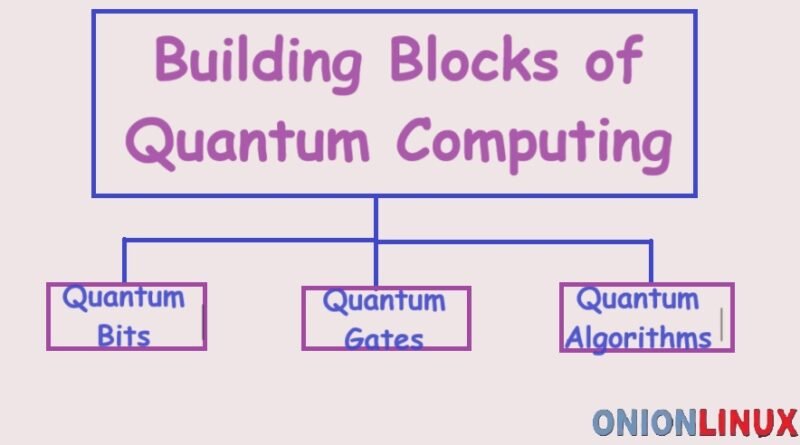Building Blocks of Quantum Computing
In this blog post, we will explore the fundamental building blocks that make up the foundation of this revolutionary field. Quantum computing has the potential to revolutionize the way we process information, solve complex problems, and advance scientific research. Let’s Explore the Building Blocks of Quantum Computing!
Quantum Bits: The Foundation of Quantum Computing
At the heart of quantum computing are quantum bits, or qubits. Unlike classical bits, which can represent either a 0 or a 1, qubits can exist in multiple states simultaneously thanks to a phenomenon called superposition. This property allows quantum computers to perform complex calculations in parallel, offering the potential for exponential speedup compared to classical computers.
Qubits can be implemented using various physical systems, such as atoms, ions, photons, or superconducting circuits. Each of these systems has its own advantages and challenges, and researchers are actively exploring different approaches to build scalable and error-tolerant qubits.
Quantum Gates: Manipulating Qubits
In classical computing, logic gates are used to manipulate bits and perform operations such as AND, OR, and NOT. Similarly, in quantum computing, quantum gates are used to manipulate qubits and perform quantum operations.
Quantum gates can perform a wide range of operations, including rotations, flips, and entanglement. These operations allow us to manipulate the quantum state of qubits and perform computations. Some commonly used quantum gates include the Hadamard gate, CNOT gate, and Toffoli gate.
It’s worth noting that quantum gates are reversible, meaning that they can be undone. This reversibility is a fundamental property of quantum computing and enables quantum algorithms to take advantage of interference and superposition.
Quantum Algorithms: Solving Complex Problems
Quantum computing holds great promise for solving complex problems that are intractable for classical computers. Quantum algorithms leverage the unique properties of qubits, such as superposition and entanglement, to perform computations more efficiently.
One of the most well-known quantum algorithms is Shor’s algorithm, which can efficiently factor large numbers. This has significant implications for cryptography and the security of modern encryption methods. Other quantum algorithms, such as Grover’s algorithm, can be used for searching unsorted databases with a quadratic speedup compared to classical algorithms.
However, developing quantum algorithms is a challenging task that requires expertise in both quantum mechanics and computer science. Researchers are actively exploring new algorithms and optimization techniques to harness the full potential of quantum computing.
Quantum Error Correction: Overcoming Decoherence
One of the biggest challenges in quantum computing is dealing with errors caused by decoherence and noise. Quantum systems are extremely sensitive to environmental disturbances, leading to the degradation of quantum states and the loss of information.
Quantum error correction (QEC) is a field of study that aims to mitigate these errors and protect quantum information. QEC techniques involve encoding quantum states in a way that allows for the detection and correction of errors. This is achieved by introducing redundant qubits and applying error-correcting codes.
Developing robust QEC methods is crucial for building reliable and scalable quantum computers. Researchers are actively working on improving the fault-tolerance and efficiency of these error correction techniques.
Conclusion
Quantum computing is a rapidly evolving field that holds immense potential for solving complex problems and advancing scientific research. The building blocks of quantum computing, including qubits, quantum gates, quantum algorithms, and quantum error correction, form the foundation for this exciting technology.
As researchers continue to make breakthroughs in quantum hardware and software, we can expect to see even more powerful quantum computers in the future. The development of practical quantum algorithms and error correction techniques will pave the way for real-world applications in areas such as cryptography, optimization, and drug discovery.
